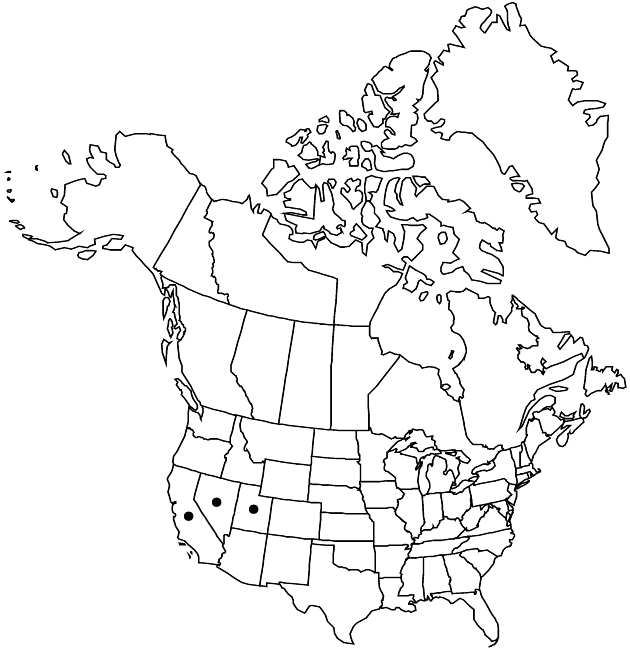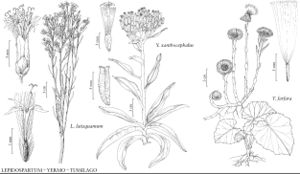Difference between revisions of "Lepidospartum latisquamum"
Proc. Amer. Acad. Arts 25: 133. 1890.
Treatment appears in FNA Volume 20. Treatment on page 633.
FNA>Volume Importer |
FNA>Volume Importer |
||
| Line 45: | Line 45: | ||
|publication year=1890 | |publication year=1890 | ||
|special status= | |special status= | ||
| − | |source xml=https://jpend@bitbucket.org/aafc-mbb/fna-data-curation.git/src/ | + | |source xml=https://jpend@bitbucket.org/aafc-mbb/fna-data-curation.git/src/f50eec43f223ca0e34566be0b046453a0960e173/coarse_grained_fna_xml/V19-20-21/V20_1427.xml |
|tribe=Asteraceae tribe Senecioneae | |tribe=Asteraceae tribe Senecioneae | ||
|genus=Lepidospartum | |genus=Lepidospartum | ||
Revision as of 20:25, 16 December 2019
Shrubs, 10–250 cm, broomlike. Flowering stems pannose with glabrescent striae. Leaf blades (flowering stems) filiform, 10–40 (× ca. 1) mm. Peduncles 0–5+ mm. Involucres turbinate to cylindric, 6–8 mm. Phyllaries 8–13, lanceolate to ovate, tomentose, glabrescent. Florets 4–6; corollas 7.5–10 mm. Cypselae 5–6.5 mm, 5-nerved, densely pilose; pappi 7–11 mm. 2n = 60.
Phenology: Flowering late summer.
Habitat: Sandy, gravelly soils, desert washes, fans
Elevation: 1400–2500 m
Distribution

Calif., Nev., Utah.
Discussion
Selected References
None.
Lower Taxa
None.
